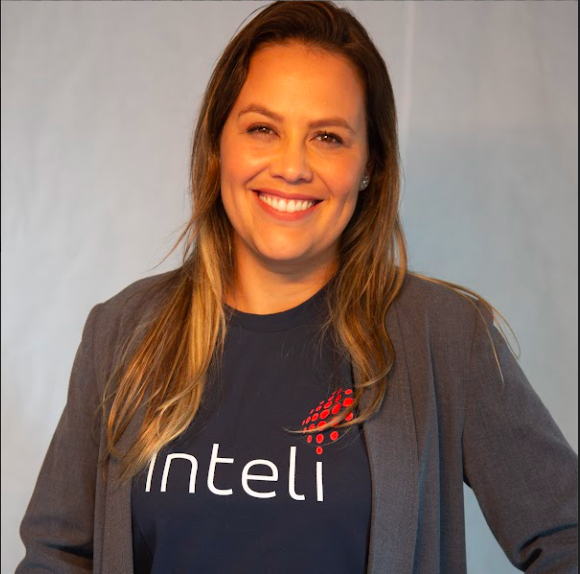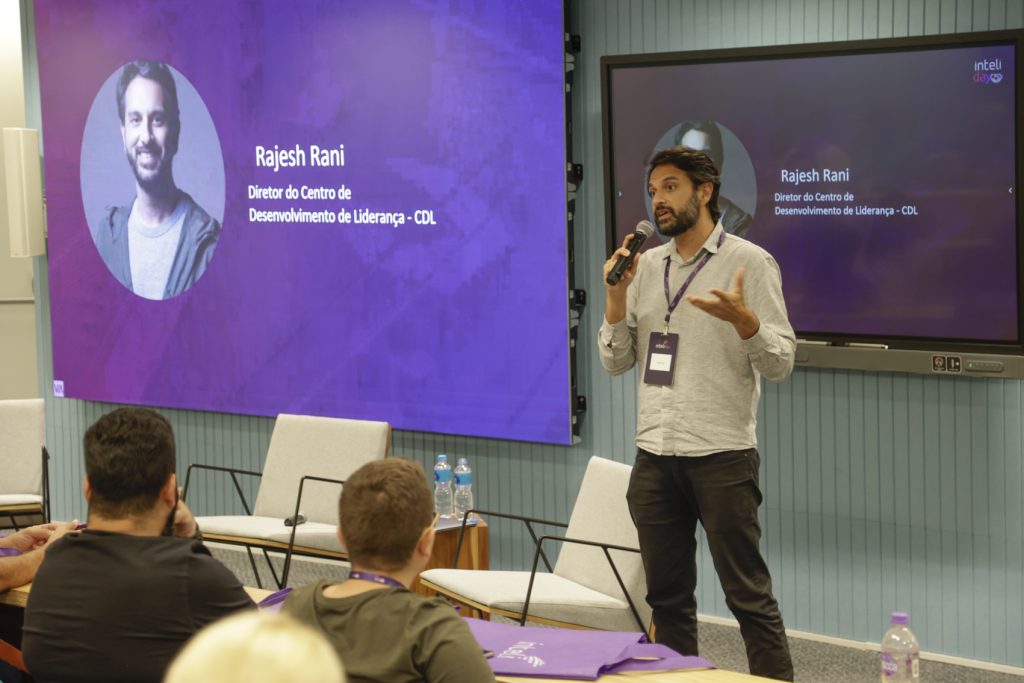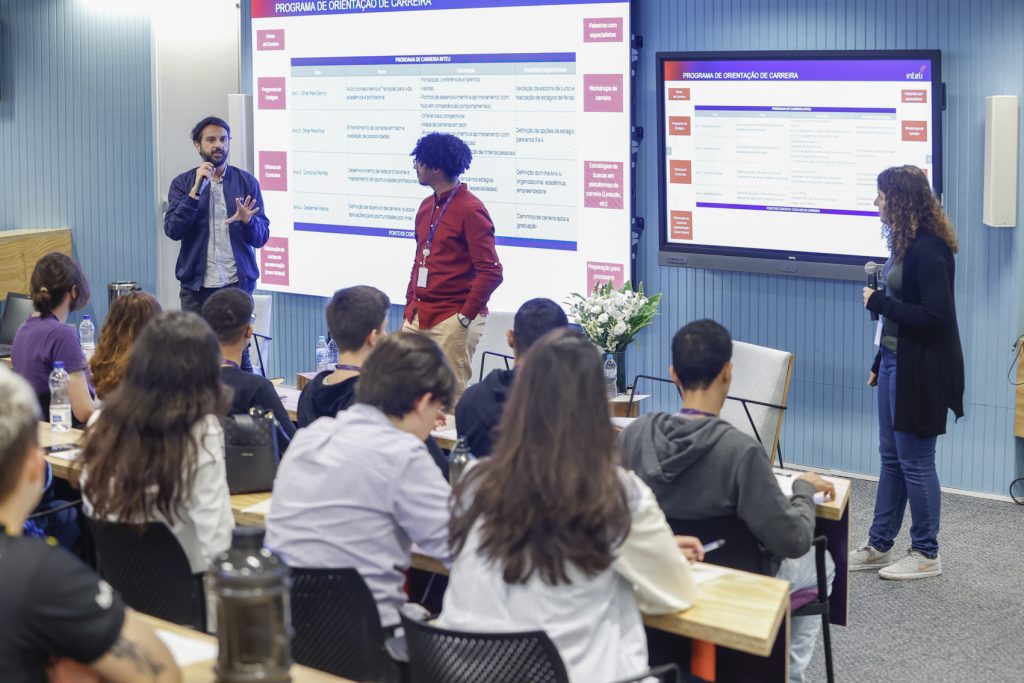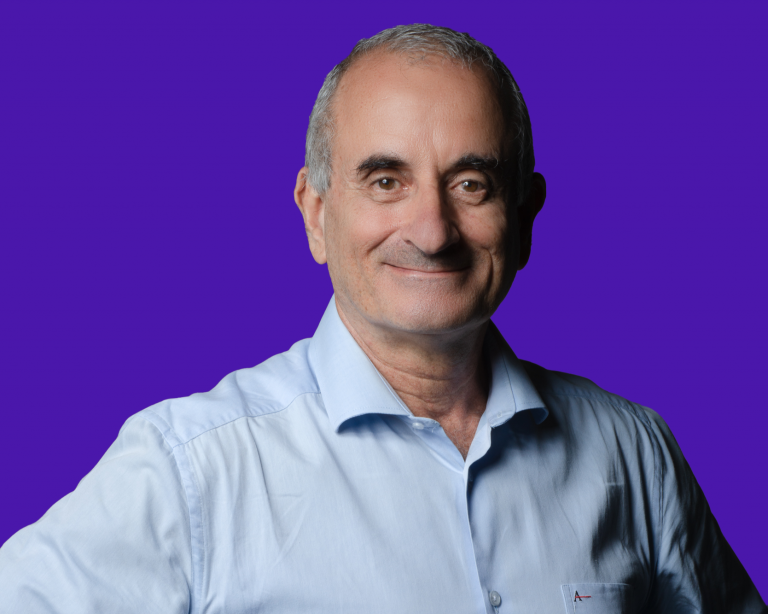Find out why CDL plays a fundamental role in the holistic training of Inteli students The technology professional of the future needs to know how to communicate, work in a team, deal with moral and ethical dilemmas, develop resilience and make the best choices for their own career. With this in mind, Inteli has based its methodology on the belief that the education of a computer engineer goes beyond theoretical content in machine learning, data science, distributed computing or software engineering.

Individual and group coaching and preparation for the job market are part of the curriculum. "It's not a lecture, it's not Careers Week, it's not a one-off thing. It's every day in the classroom," says Maira Habimorad, Inteli's CEO.
The birth of the CDL
Raj Rani, head of the Leadership Development Center - CDL, combined his personal experiences with a great passion for education to give life to a project that relied on a lot of research, experimentation and innovation. All this after a successful professional career in the financial market, human development, career guidance, recruitment and headhunting.

CDL was created to help students navigate complex logics and work collaboratively and creatively, connecting theoretical and multidisciplinary knowledge with the social and behavioral skills so desired by the job market. "In the end, our desire is to be part of the process of building engaged citizens who are attentive to the world's problems," explains Raj.
It's an ambitious idea that will begin to bear fruit in 2022, with the first class of Inteli students. "One of our focuses is the narrative curriculum, in other words, the way in which each young person will receive the learning experience is linked to their life trajectory. The key is to always keep an eye on the individual," he says.
Three pillars that connect
The Leadership Development Center is organized around three pillars:
1) Socio-behavioral Training, 2) Careers and 3) Well-being.

In socio-behavioral training, leadership skills (critical thinking, self-knowledge, collaboration and communication) are worked on through projects. In other words, everything happens intentionally. A look at the humanities - such as ethics, philosophy and psychology - is also part of the students' curricular experience.
The second pillar of the CDL supports students in matters related to transitions, possibilities, choices and career preparation. The main point of contact is the Individual Guidance Program, carried out by Career Coaches. "We chose to bring in professionals with experience in the areas of Technology and with a background in Coaching or Psychology," says Raj.
During this time, some students may use individual coaching to talk about a personal problem that is hindering their professional development. In these cases, the advice is to welcome them and see what can be done to prevent the problem from an academic perspective. If the problem is more critical, the student will be referred to an external psychologist, and it is this professional who will direct the best approach that speaks to the student's reality.

Finally, the CDL's Well-being pillar offers support services in areas that go beyond academic life, such as physical health, nutrition, mental health, personal finances and social life. Among the activities are lectures with specialists on various topics; discussion groups to debate and address needs; a listening channel to share situations and requests; and structured thematic programs with voluntary participation.
Allan dos Santos Casado, a Computer Science student, took part in the round table discussion on financial education. "The activity was extremely important in giving me a more precise view of what I can do right now to deal more efficiently with my finances," he says. Matheus Rafael, also from the Computer Science class, recalls how important the round table with students who were living in São Paulo for the first time was for sharing experiences, points of view and expectations. "We felt more and more free to talk to the whole team and not just the teachers," he adds.







